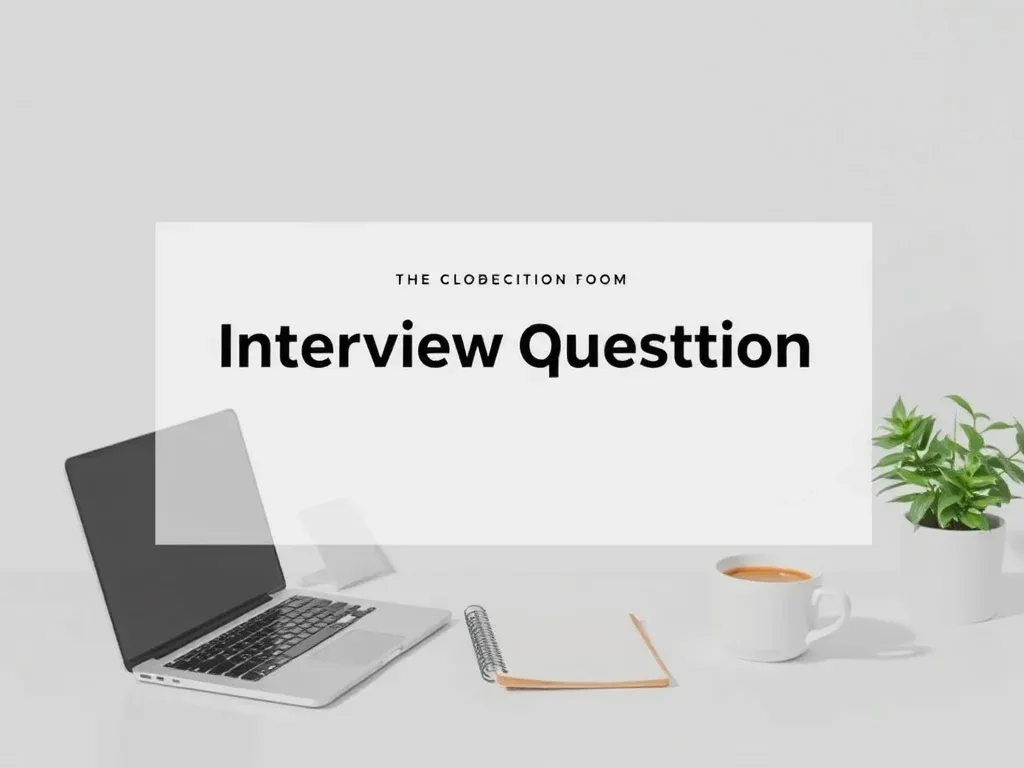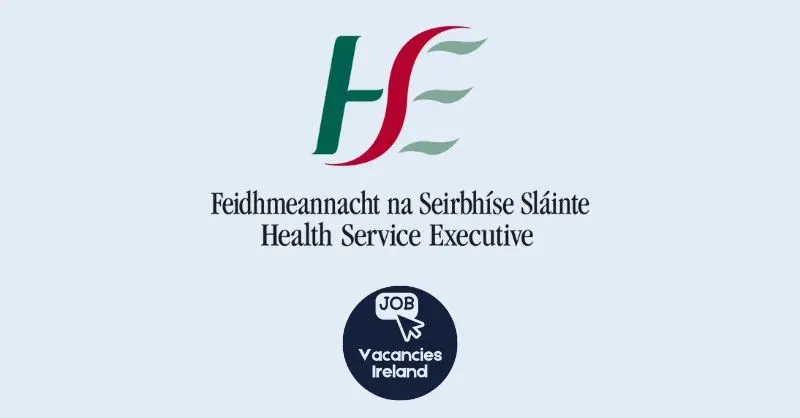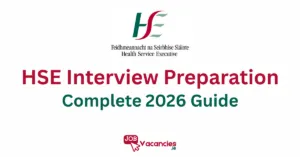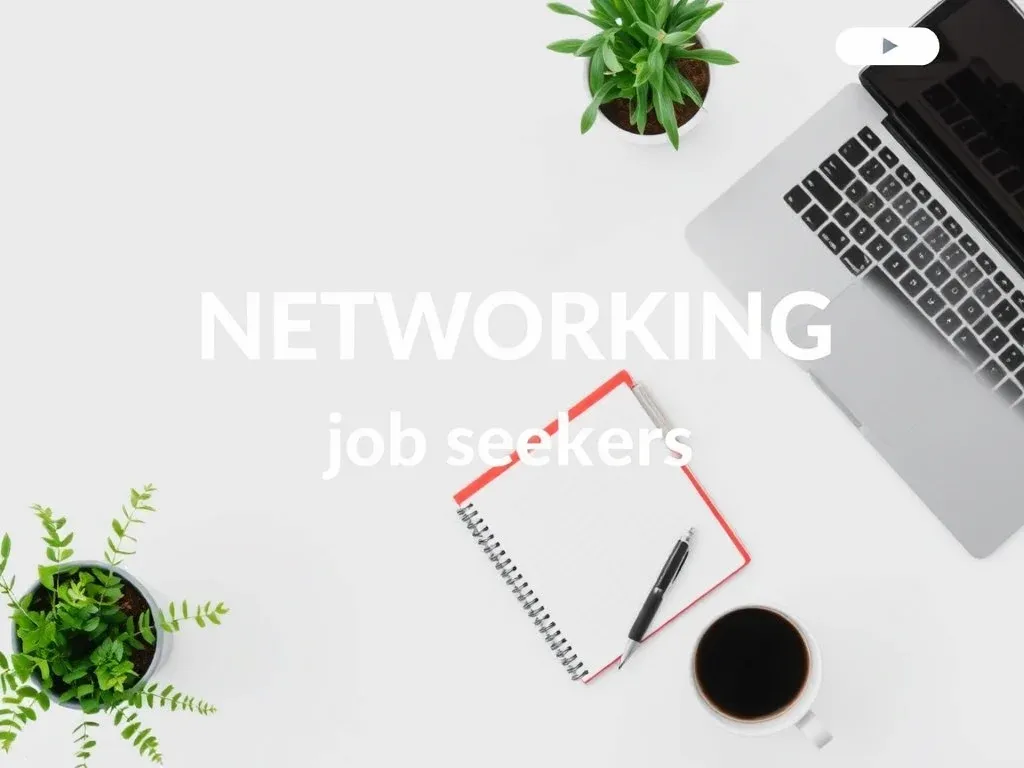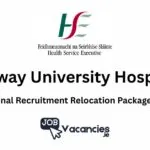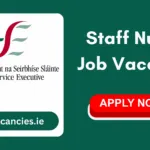Table of Contents
- Table of Contents
- Introduction
- Interview Preparation in the Irish Context
- 1. Tell me about yourself
- How to Answer:
- 2. Why do you want to work for our company?
- How to Answer:
- 3. What are your greatest strengths?
- How to Answer:
- 4. What is your greatest weakness?
- How to Answer:
- 5. Describe a challenging situation and how you handled it
- How to Answer:
- 6. Where do you see yourself in five years?
- How to Answer:
- 7. Why are you leaving your current job?
- How to Answer:
- 8. How do you handle pressure or stressful situations?
- How to Answer:
- 9. What salary are you expecting?
- How to Answer:
- 10. Do you have any questions for us?
- How to Answer:
- Irish-Specific Interview Questions
- Common Ireland-Specific Questions:
- Industry-Specific Questions
- Technology Sector
- Financial Services
- Healthcare and Pharmaceuticals
- Hospitality and Tourism
- Conclusion
- Find Your Next Career Opportunity in Ireland
- Related Articles
- How to Write a Winning CV for Irish Employers
- Networking in Ireland: Building Professional Connections
- Understanding Irish Workplace Culture
- About the Author
- Related Posts
Top 10 Interview Questions Asked by Irish Companies and How to Answer Them
Reading time: 8 minutes
Preparing for a job interview with an Irish company? Understanding the most common questions and how to craft compelling answers can significantly boost your chances of success. This guide breaks down the top 10 questions you’re likely to face and provides expert advice on how to respond effectively.
Introduction
Job interviews can be nerve-wracking, especially when you’re not sure what to expect. In Ireland, while the interview process follows many international standards, there are cultural nuances and expectations specific to Irish workplaces that can influence the types of questions asked and how your answers are received.
According to recent surveys of Irish employers, 78% make their hiring decision within the first 15 minutes of an interview, highlighting the importance of preparation and first impressions. This guide will help you navigate the most common questions asked by Irish employers, with sample answers tailored to the Irish workplace culture.
Pro Tip:
Research shows that candidates who research the company thoroughly and prepare specific examples from their experience are 60% more likely to receive job offers. Take time to understand the company’s values, recent projects, and industry position before your interview.
Interview Preparation in the Irish Context
Before diving into specific questions, it’s important to understand some key aspects of Irish business culture that may influence your interview:
- Modesty is valued: While you should highlight your achievements, excessive self-promotion can be viewed negatively. Irish culture tends to appreciate humility alongside confidence.
- Relationship-building: Irish business culture places high value on personal connections. Don’t be surprised if the interview begins with small talk about your journey to the interview, the weather, or other light topics.
- Humor is appreciated: A well-placed, appropriate bit of humor can help establish rapport, though it should never come at the expense of professionalism.
- Directness with courtesy: Irish communication style tends to be direct but delivered with politeness. Your answers should be straightforward but tactful.
With these cultural considerations in mind, let’s explore the top 10 questions you’re likely to encounter in an interview with an Irish company.
1. Tell me about yourself
This open-ended question typically serves as an icebreaker but is also an opportunity to make a strong first impression. Irish employers are looking for a concise overview of your professional journey, relevant skills, and what brings you to this opportunity.
How to Answer:
Structure your answer in three parts:
- Present: Begin with your current role and key responsibilities
- Past: Briefly mention relevant previous experience and how it’s prepared you for this role
- Future: Express why you’re interested in this position and company
Keep your answer to 1-2 minutes and focus on professional rather than personal information.
Sample Answer:
“I’m currently a Marketing Specialist at XYZ Company, where I’ve spent the last three years developing digital marketing campaigns that increased our client engagement by 45%. Before that, I completed my degree in Marketing at University College Dublin and interned with a local agency where I gained experience in social media management and content creation. I’ve always admired your company’s innovative approach to marketing solutions, particularly your recent campaign for [specific project]. I’m excited about the possibility of bringing my analytical skills and creative thinking to your team and contributing to your continued growth in the Irish market.”
What to Avoid:
Don’t recite your entire CV, share overly personal information, or speak negatively about current or previous employers. In the Irish context, it’s also best to avoid appearing overly boastful – focus on facts and let your achievements speak for themselves.
2. Why do you want to work for our company?
This question tests whether you’ve done your research and have genuine interest in the organization. Irish employers value candidates who show they understand the company’s place in the local market and can articulate specific reasons for their interest.
How to Answer:
Your answer should demonstrate that you’ve researched the company thoroughly and can connect your values, skills, and career goals to what the organization offers. Include:
- Specific aspects of the company’s products, services, or projects that impress you
- Elements of the company culture or values that resonate with you
- How the role aligns with your career aspirations
- If applicable, mention any connection to or interest in the Irish market
Sample Answer:
“I’ve been following your company’s growth in the Irish tech sector for several years, and I’ve been particularly impressed by your commitment to sustainability, as shown in your recent initiative to reduce carbon emissions across your Dublin operations. Your reputation for investing in employee development through your mentorship program is also appealing to me, as I’m looking to grow my skills in cloud architecture. Additionally, I admire how your company has maintained strong connections to the local community while expanding internationally. My experience in developing scalable software solutions aligns well with your current projects, and I’m excited about the opportunity to contribute to an organization that balances innovation with social responsibility.”
Pro Tip:
Reference recent news about the company or industry developments in Ireland to demonstrate your current knowledge and genuine interest. For example, mention a recent expansion, award, or innovation the company has announced.
3. What are your greatest strengths?
This question gives you the opportunity to highlight the skills and qualities that make you an ideal candidate. Irish employers typically value a combination of technical competence and interpersonal skills.
How to Answer:
Select 2-3 strengths that are most relevant to the position and provide specific examples that demonstrate these strengths in action. Balance technical skills with soft skills, and ensure your examples show measurable impact where possible.
Sample Answer:
“One of my greatest strengths is my analytical problem-solving ability. In my current role, I identified inefficiencies in our reporting process that were costing the team about 10 hours per week. I developed an automated solution that reduced this time by 70%, allowing us to focus on more strategic tasks. I’m also known for my strong communication skills, particularly in translating complex technical concepts for non-technical stakeholders. This was valuable during our recent system upgrade when I created documentation and training materials that helped smooth the transition for our entire Dublin office. Finally, I pride myself on my adaptability. When our team suddenly had to shift to remote work during the pandemic, I quickly established virtual collaboration protocols that maintained our productivity levels despite the change.”
What to Avoid:
In the Irish context, avoid answers that might come across as arrogant or overly self-promoting. Focus on factual achievements rather than subjective self-assessment. Also, avoid generic strengths like “I’m a hard worker” without specific examples to back them up.
4. What is your greatest weakness?
This question assesses your self-awareness and commitment to professional growth. Irish employers appreciate honesty combined with a proactive approach to self-improvement.
How to Answer:
Choose a genuine weakness that:
- Is not critical to the role you’re applying for
- You’ve actively worked to improve
- Shows your commitment to professional development
Describe the weakness, explain the steps you’ve taken to address it, and share the progress you’ve made.
Sample Answer:
“I’ve sometimes struggled with public speaking, which made me nervous when presenting to large groups. Recognizing this was limiting my effectiveness in certain situations, I joined a local Toastmasters group in Dublin last year to practice regularly in a supportive environment. I’ve also volunteered to lead more team presentations at my current job. While I still feel some nervousness, I’ve developed strategies to manage it effectively, and my manager has commented on my improved presentation skills. I’m continuing to work on this area because I understand the importance of clear communication in collaborative environments.”
Pro Tip:
Irish workplace culture values continuous learning. Mentioning specific courses, certifications, or learning resources you’ve used to address your weakness can demonstrate your commitment to improvement.
5. Describe a challenging situation and how you handled it
This behavioral question helps employers understand how you approach problems and work under pressure. Irish employers often value resourcefulness and the ability to maintain positive working relationships during difficult situations.
How to Answer:
Use the STAR method (Situation, Task, Action, Result) to structure your response:
- Situation: Briefly describe the context and challenge
- Task: Explain your responsibility in that situation
- Action: Detail the specific steps you took to address the challenge
- Result: Share the positive outcomes and what you learned
Choose an example that demonstrates valuable skills like problem-solving, teamwork, communication, or leadership.
Sample Answer:
“Last year, our team was midway through a critical project for a major client when our project manager had to take unexpected leave for two weeks due to a family emergency. As the senior team member, I was asked to temporarily lead the six-person team to keep the project on track for its deadline, which was just three weeks away. I immediately organized a team meeting to reassess our progress and priorities, created a detailed tracking system to monitor daily progress, and established daily check-ins to quickly identify and address any blockers. I also maintained regular communication with the client to manage expectations and provide updates. Despite the disruption, we delivered the project on time with all requirements met. The client was extremely satisfied, and our director used our approach as a case study for effective project management during unexpected challenges. This experience taught me the importance of adaptability, clear communication, and systematic problem-solving when facing unforeseen circumstances.”
What to Avoid:
Avoid examples that might reflect poorly on your professionalism, such as conflicts with colleagues that arose from personality clashes rather than work issues. In the Irish workplace context, also avoid examples that might suggest an inability to work collaboratively or adapt to changing circumstances.
6. Where do you see yourself in five years?
This question helps employers gauge your ambition, career planning, and whether you’re likely to stay with the company long-term. Irish employers often value loyalty and commitment, particularly in smaller organizations.
How to Answer:
Your answer should demonstrate:
- Realistic ambition and career planning
- Interest in growing with the company
- Alignment between your goals and what the company can offer
- Commitment to developing relevant skills and expertise
Sample Answer:
“In five years, I hope to have grown into a senior role where I can lead projects and mentor junior team members. I’m particularly interested in developing expertise in [specific area relevant to the company], which I know is a growing focus for your organization. I plan to enhance my skills through continuous learning and professional development, including completing [relevant certification or training] within the next two years. I’m attracted to your company partly because of its track record of internal advancement and the opportunities it provides for employees to take on new challenges. Ultimately, I want to be in a position where I’m making significant contributions to the company’s success in the Irish market while continuing to grow professionally.”
Pro Tip:
Research the typical career progression within the company and industry in Ireland. If the company has a strong presence in multiple locations, you might mention interest in contributing to international projects or teams while remaining based in Ireland, if that aligns with your goals.
7. Why are you leaving your current job?
This question helps employers understand your motivations and whether you’re likely to be satisfied in the new role. Irish business culture values professionalism and positive framing, even when discussing challenging situations.
How to Answer:
Focus on positive, forward-looking reasons for seeking a new position, such as:
- Professional growth opportunities
- New challenges or skills development
- Better alignment with your career goals
- Interest in the company’s industry, products, or mission
Be honest but diplomatic, and avoid speaking negatively about your current employer.
Sample Answer:
“I’ve spent four valuable years with my current company, where I’ve learned a great deal and contributed to several successful projects. However, I’m now looking for opportunities to expand my experience in [specific area or skill], which is more aligned with my long-term career goals. Your company’s focus on [relevant aspect of the business] offers exactly the kind of challenge and growth I’m seeking at this point in my career. I’ve also been impressed by your organization’s commitment to innovation in the Irish market, and I’m excited about the possibility of contributing to that work.”
What to Avoid:
Avoid criticizing your current employer, colleagues, or management. The Irish professional community is relatively small, particularly within industries, and negative comments can reflect poorly on your professionalism. Also avoid mentioning salary as your primary motivation, even if it is a factor.
8. How do you handle pressure or stressful situations?
This question assesses your resilience and coping strategies. Irish workplaces, particularly in sectors like technology, financial services, and healthcare, can involve periods of high pressure, and employers want to ensure you can maintain performance and wellbeing during these times.
How to Answer:
Describe your specific strategies for managing stress and pressure, such as:
- Prioritization and time management techniques
- Breaking complex problems into manageable tasks
- Maintaining perspective and a positive attitude
- Seeking support or collaboration when appropriate
- Self-care practices that help you maintain balance
Include a brief example that demonstrates these strategies in action.
Sample Answer:
“I’ve developed several effective strategies for managing pressure. First, I prioritize tasks based on urgency and impact, which helps me focus on what truly matters when time is limited. I also find that breaking larger projects into smaller, achievable milestones helps maintain progress and reduce feeling overwhelmed. For example, during our company’s system migration last year, we faced an unexpectedly tight deadline due to compliance requirements. I created a detailed project timeline with daily goals, identified tasks that could be delegated, and scheduled brief daily check-ins with team members to quickly address any blockers. I also made sure to maintain my regular exercise routine during that period, which helps me manage stress and maintain clarity. The project was completed on time, and our director commented on how calm and organized the process remained despite the pressure.”
Pro Tip:
Irish workplace culture increasingly recognizes the importance of wellbeing and work-life balance. Mentioning healthy boundaries and self-care as part of your stress management strategy can demonstrate your commitment to sustainable high performance.
9. What salary are you expecting?
This question helps employers determine if your expectations align with their budget. In Ireland, salary discussions can sometimes be considered sensitive, but being prepared with a well-researched response shows professionalism.
How to Answer:
Before the interview, research salary ranges for similar positions in Ireland, considering:
- Industry standards (using resources like Glassdoor, Indeed, or Irish salary surveys)
- Your experience level and qualifications
- The company size and location (Dublin typically offers higher salaries than other regions)
- The total compensation package, including benefits
Sample Answer:
“Based on my research of similar roles in the Dublin tech sector and considering my five years of experience and specialized skills in data analytics, I’m looking for a salary in the range of €55,000 to €65,000. However, I’m also considering the entire compensation package, including benefits and growth opportunities, which I know your company has a strong reputation for. I’m open to discussing this further to find a package that reflects both the value I can bring to your team and aligns with your company’s structure.”
What to Avoid:
Avoid providing a single, fixed number, which limits your negotiating flexibility. Also, don’t undersell yourself out of fear of seeming demanding – Irish employers generally respect candidates who know their market value. If you’re uncomfortable naming a figure first, you can politely ask about the budgeted range for the position.
10. Do you have any questions for us?
This question gives you the opportunity to demonstrate your interest in the role and company while gathering information to help you decide if the position is right for you. In Irish interviews, thoughtful questions can distinguish you from other candidates.
How to Answer:
Prepare 3-5 thoughtful questions that show you’ve researched the company and are serious about the role. Consider questions about:
- The team you’d be working with
- The company’s plans and challenges
- Performance expectations and success metrics
- Professional development opportunities
- Company culture and values
Sample Questions to Ask:
- “I noticed your company recently opened a new office in Cork. How does this team collaborate with colleagues across different locations in Ireland?”
- “What are the biggest challenges the team is currently facing, and how would this role contribute to addressing them?”
- “How would you describe the company culture, and how has it evolved as the organization has grown in the Irish market?”
- “What does success look like in this position during the first six months, and how is performance measured?”
- “I’m interested in your mentorship program that was mentioned on your website. Could you tell me more about how that works for new employees?”
Pro Tip:
Listen carefully throughout the interview and reference information that was shared when asking your questions. This demonstrates active listening and engagement. For example: “You mentioned earlier that the team has recently adopted a new project management methodology. How has that transition been going, and what impact has it had on productivity?”
Irish-Specific Interview Questions
In addition to standard interview questions, you might encounter some questions specific to working in Ireland, particularly if you’re an international candidate or the role involves understanding the local market.
Common Ireland-Specific Questions:
1. Are you familiar with the Irish market/business environment?
If you have experience with the Irish market, highlight specific insights or projects. If not, emphasize your research and understanding of key aspects like:
- Ireland’s position as a European tech hub and gateway to EU markets
- The importance of multinational corporations in the Irish economy
- Relevant regulatory frameworks or industry standards
- Cultural aspects of Irish business practices
2. What interests you about working in Ireland?
For international candidates, this question explores your motivation and commitment to working in Ireland. Focus on professional reasons like:
- Ireland’s strong reputation in your industry (tech, pharma, financial services, etc.)
- Specific companies or innovations coming from the Irish market
- Professional growth opportunities
- If applicable, personal connections to Ireland that demonstrate commitment to staying
3. How do you think your experience in [previous market] would translate to the Irish context?
Highlight transferable skills and experiences while acknowledging any learning curve:
- Universal professional skills that apply across markets
- Adaptability and examples of working in diverse environments
- Research you’ve done to understand differences and similarities
- Eagerness to learn about local business practices
Industry-Specific Questions
Different sectors in Ireland may have specialized interview questions. Here are examples from key industries:
Technology Sector
- “How do you stay current with rapidly evolving technologies?”
- “Describe a project where you had to learn a new technology quickly.”
- “How do you approach balancing technical debt with new feature development?”
- “What are your thoughts on Ireland’s position as a European tech hub?”
Financial Services
- “How familiar are you with EU financial regulations and their implementation in Ireland?”
- “How do you ensure accuracy and attention to detail in your work?”
- “Describe your experience with risk assessment and management.”
- “What challenges do you see for the financial sector in Ireland over the next few years?”
Healthcare and Pharmaceuticals
- “How do you stay informed about healthcare regulations and compliance requirements?”
- “Describe your experience working in regulated environments.”
- “How would you contribute to patient care/safety in this role?”
- “What do you know about Ireland’s healthcare system and pharmaceutical industry?”
Hospitality and Tourism
- “How would you handle a difficult customer situation?”
- “What experience do you have with peak season management?”
- “How would you promote authentic Irish experiences to international visitors?”
- “What trends do you see emerging in Ireland’s tourism industry?”
Pro Tip:
Research industry-specific challenges and opportunities in the Irish context before your interview. Industry publications, IDA Ireland reports, and Enterprise Ireland resources can provide valuable insights that will help you prepare thoughtful answers to sector-specific questions.
Conclusion
Preparing for interviews with Irish companies requires understanding both universal interview best practices and the specific nuances of Irish business culture. By thoroughly researching the company, practicing your responses to these common questions, and preparing thoughtful questions of your own, you’ll demonstrate your professionalism and genuine interest in the role.
Remember that Irish employers typically value a balance of competence and character – they want to know not just that you can do the job, but that you’ll be a positive addition to their team culture. Approach your interview with confidence, authenticity, and a touch of humility, and you’ll make a strong impression.
Final Tips:
- Research the company thoroughly, including recent news and developments in Ireland
- Practice your answers but avoid sounding rehearsed
- Prepare specific examples that demonstrate your skills and experiences
- Arrive early (or log in early for virtual interviews)
- Follow up with a thank-you email within 24 hours
- If interviewing for a role in an Irish company, familiarize yourself with any industry-specific terminology or practices that might differ from what you’re used to
Good luck with your interview! With thorough preparation and the right approach, you’ll be well-positioned to succeed in the Irish job market.
Find Your Next Career Opportunity in Ireland
Ready to put these interview skills to use? JobVacancies.ie features thousands of opportunities across all sectors throughout Ireland. Create your profile today to get matched with employers looking for candidates like you.
